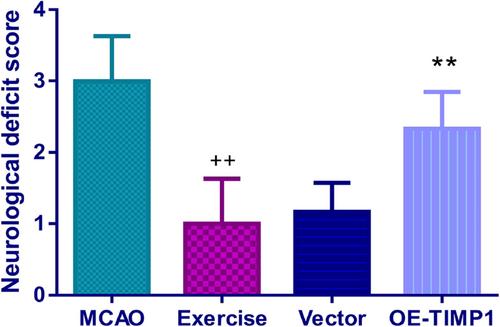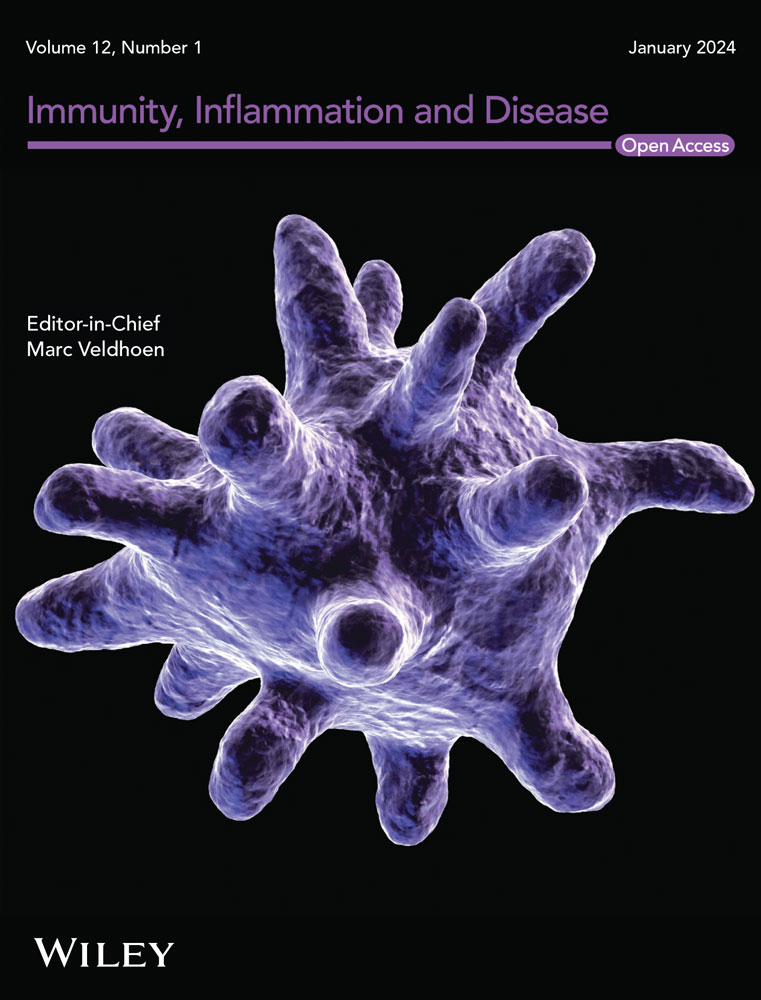Exercise preconditioning mitigates brain injury after cerebral ischemia-reperfusion injury in rats by restraining TIMP1
Abstract
Background
Cerebral ischemic disease is a common cerebrovascular disease, especially ischemic stroke. Exercise has protective functions on brain tissues following cerebral ischemia-reperfusion injury (CIRI), but its preventive effects and mechanisms in CIRI remain unclear. We aimed to investigate the effects and mechanisms of exercise preconditioning on CIRI.
Methods
The middle cerebral artery occlusion (MCAO) operation was prepared to establish CIRI rats. All rats were randomized into the MCAO, exercise (exercise preconditioning plus MCAO operation), vector (exercise preconditioning, MCAO operation plus intraventricular injection of empty vector), and tissue inhibitor of metalloprotease 1 overexpression (OE-TIMP1, exercise preconditioning, MCAO operation plus intraventricular injection of OE-TIMP1) groups.
Results
The results indicated that exercise preconditioning suppressed approximately 66.67% of neurological deficit scores and 73.79% of TIMP1 mRNA expression in MCAO rats, which were partially offset by OE-TIMP1. The protective effects of exercise against neuron death status and cerebral infarction size in MCAO rats were reversed by OE-TIMP1. It also confirmed that exercise weakened apoptosis and oxidative stress damage, with notable increases of B-cell lymphoma-2, superoxide dismutase, and glutathione peroxidase production, and evident decreases of BCL2-associated X, caspase 3, and malondialdehyde in MCAO rats, while these effects were partially reversed by OE-TIMP1. Additionally, the inhibitory effects of exercise on the protein levels of TIMP1, hypoxia-inducible factor-alpha, vascular endothelial growth factor receptor 2, vascular endothelial growth factor, and neurogenic locus notch homolog protein 1 in MCAO rats were partially reversed by OE-TIMP1.
Conclusion
Altogether, exercise preconditioning had protective effects on CIRI by restraining TIMP1, which provided new therapeutic strategies for preventing CIRI.


 求助内容:
求助内容: 应助结果提醒方式:
应助结果提醒方式:


